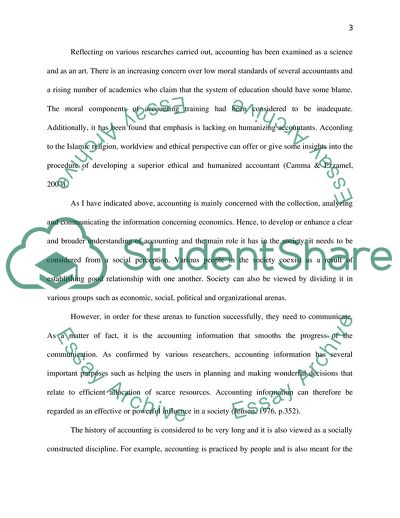Cite this document
(Socially Constructing Discipline Term Paper Example | Topics and Well Written Essays - 2250 words, n.d.)
Socially Constructing Discipline Term Paper Example | Topics and Well Written Essays - 2250 words. https://studentshare.org/finance-accounting/1789223-critically-consider-whether-accounting-is-socially-constructed-or-a-socially-constructing-discipline
Socially Constructing Discipline Term Paper Example | Topics and Well Written Essays - 2250 words. https://studentshare.org/finance-accounting/1789223-critically-consider-whether-accounting-is-socially-constructed-or-a-socially-constructing-discipline
(Socially Constructing Discipline Term Paper Example | Topics and Well Written Essays - 2250 Words)
Socially Constructing Discipline Term Paper Example | Topics and Well Written Essays - 2250 Words. https://studentshare.org/finance-accounting/1789223-critically-consider-whether-accounting-is-socially-constructed-or-a-socially-constructing-discipline.
Socially Constructing Discipline Term Paper Example | Topics and Well Written Essays - 2250 Words. https://studentshare.org/finance-accounting/1789223-critically-consider-whether-accounting-is-socially-constructed-or-a-socially-constructing-discipline.
“Socially Constructing Discipline Term Paper Example | Topics and Well Written Essays - 2250 Words”. https://studentshare.org/finance-accounting/1789223-critically-consider-whether-accounting-is-socially-constructed-or-a-socially-constructing-discipline.


